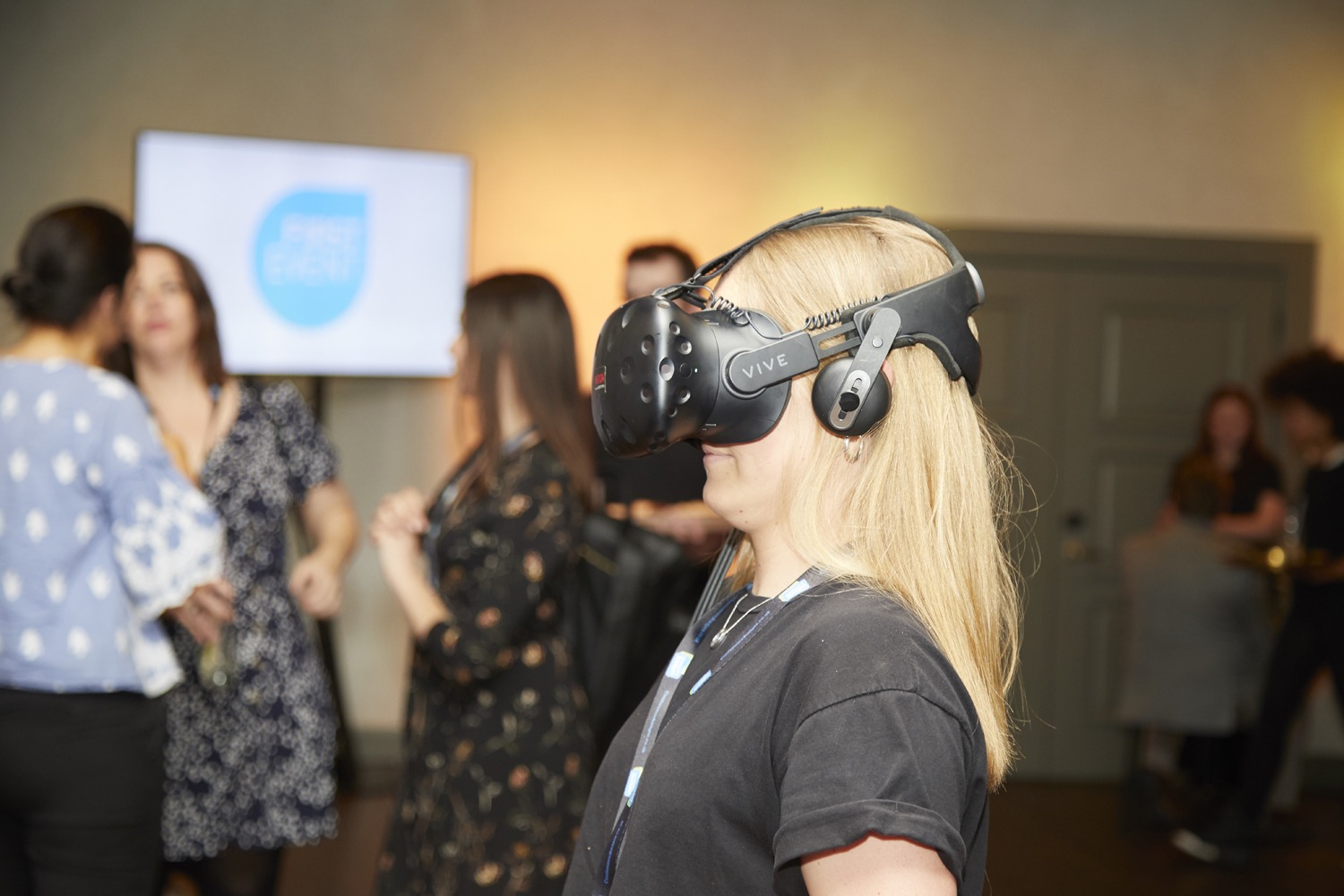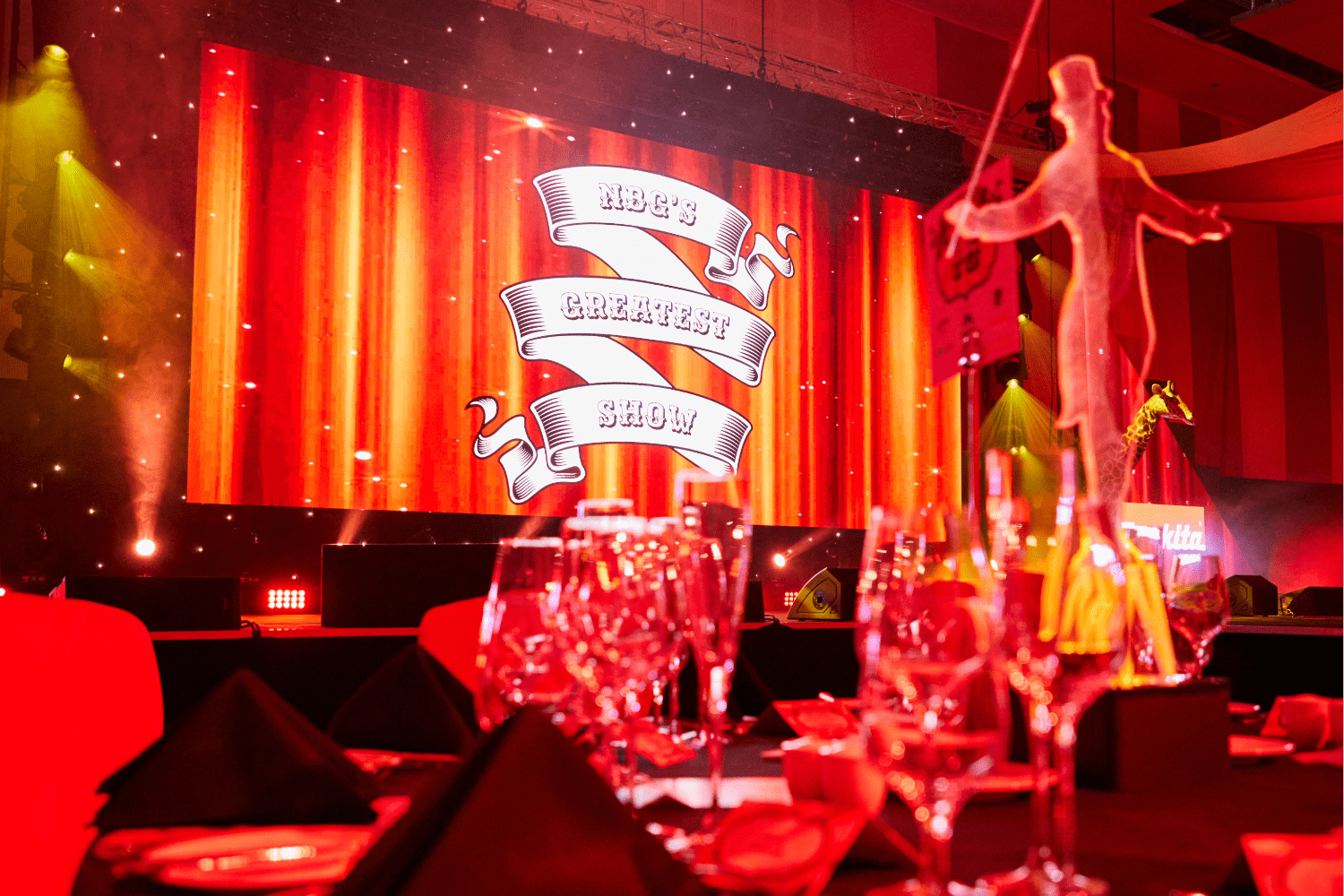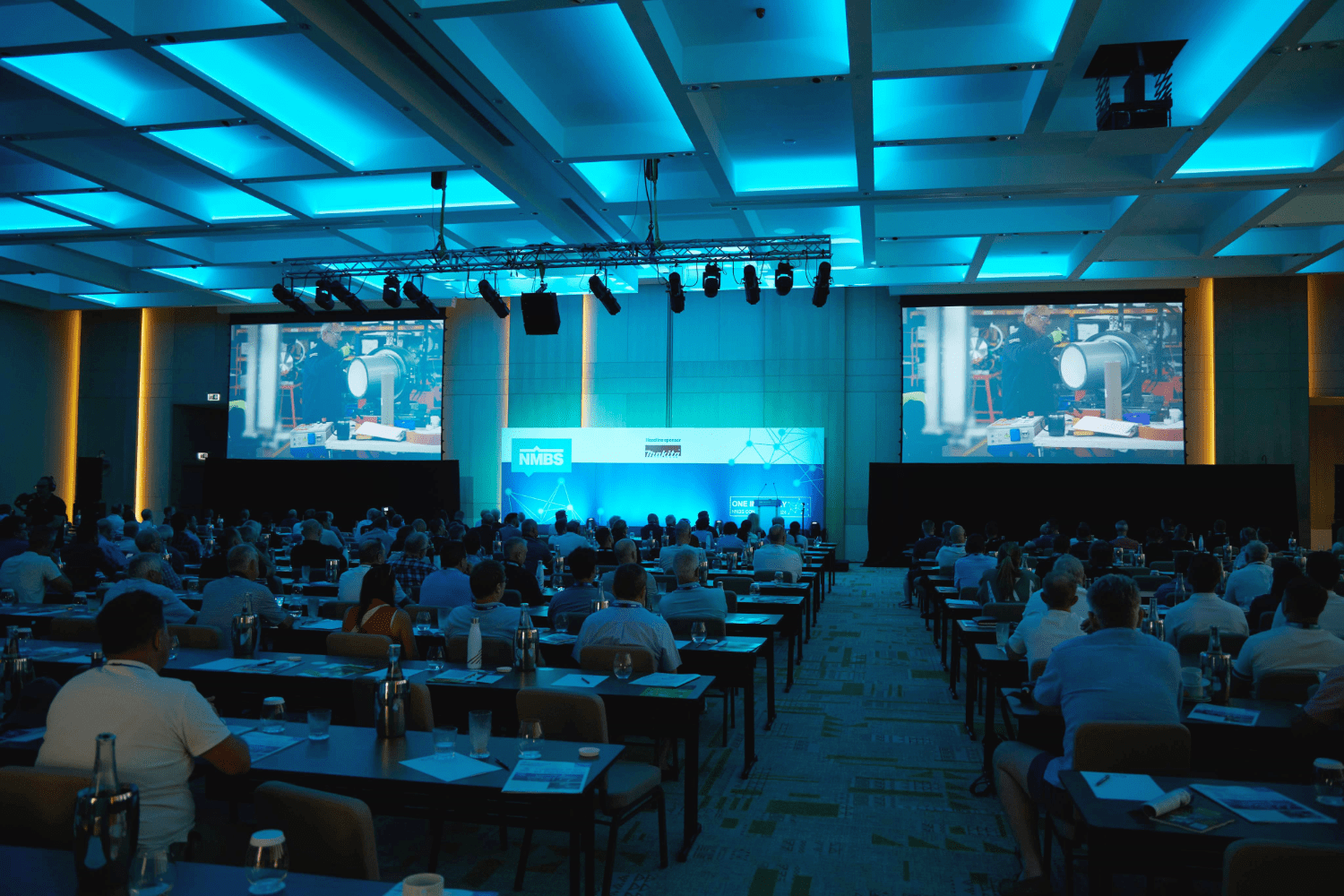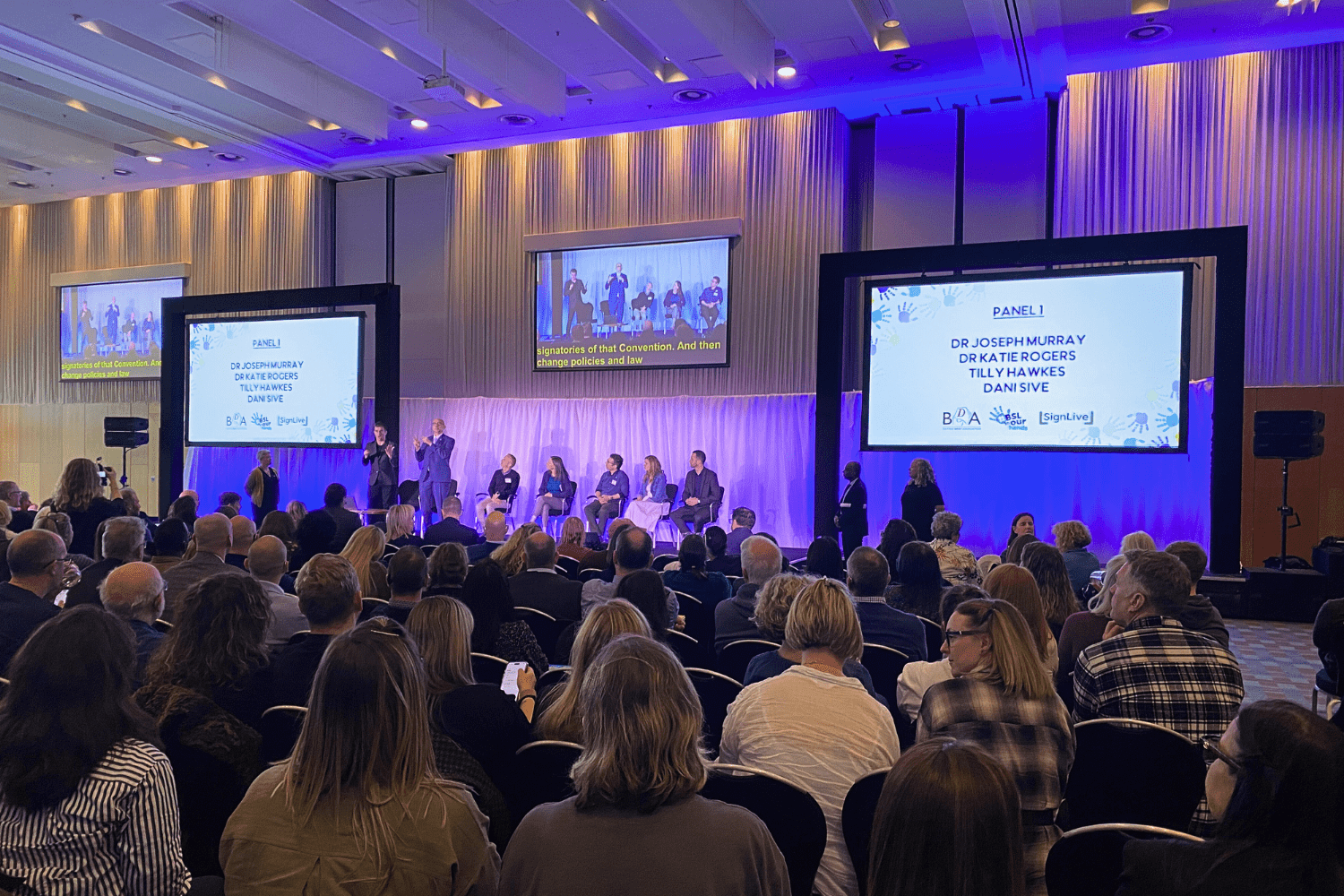 Back to News Room
Back to News Room
News

12 event technologies to boost your event ROI
Here's a highlight of the technology that's improving the way that events can inspire and deliver heightened engagement results for your spend.
Update: This article was originally published in 2018 and has been updated to improve accuracy and relevancy.
The technology revolution is innovating the way we deliver customer-centered events and experiences.
Event technology has moved well beyond a main-stage screen and a few well-timed social media posts. For event organisers and marketers, new event technologies can greatly improve the attendee experience from start to finish.
And since new technologies are continuously developing, we’ve made some updates to our original 2018 post so we can share more ideas to help you plan your event seamlessly and create effective event communications.
So, how can event technology improve your corporate events?
- Event technologies can cut management time
- You can efficiently save on niggling event errors
- They’ll help you to deliver your events in a highly personalised way
- They don’t have to be expensive in order to be effective!
Nailing your event technology stack
Before diving into 12 key event technology trends we’ve seen this year, it’s important to consider how the technologies you use will integrate and provide overall benefit to your event.
- Will they add value to the planning and event experience?
- Will they simplify your event processes and solve problems?
- Will the technology be easily adopted by your teams and attendees?
- Will the pros of using technologies justify the costs?
Whilst not every product or tool will be right for your event needs, integrated event technology can enable better networking, collaboration and individualised experiences that make for a stand-out event.
Some prep: event planning technology
There are many event planning technologies that will help you improve workflow, save time and money, and effectively use data for better event delivery.
Here are some recommended areas where technology can optimise your planning, management and event marketing:
- Online registration, ticketing and payments
- Event agenda creation and live schedule updates
- Venue finding - use our free corporate venue finding service here
- Event diagramming for venue layouts
- Travel and data management
- Promotion - there are many free tools such as email software, website builders and influencer outreach platforms to increase your event visibility and buzz
- Task allocation for staff
- Video - drones, live video
- Integrating your event technologies
12 event technology trends you should know about
1. Artificial Intelligence for Real-Time Engagement
AI is a wide area of technology that will continue to increase across industries over the next few years. AI has already made its way into events, but luckily not quite to the level of those scary computer-beings you see in sci-fi films. Instead, it is helping event planners better target and personalise their offerings for attendees. Our Digital Marketing Executive Clare, says that:
"Things like chatbot software are useful for answering queries and offering real-time insights during an event that show your consideration for each individual."
Update: Virtual assistants can be enhanced through voice recognition capabilities. In fact, voice recognition could potentially speed up attendee interactions from security checks to personalised advertising. Voice recognition is not only set to change event interactions, but how people search and sign up to events.
2. The Event App
Alongside creating a microsite to promote your event and to share important information, an app can drive further registrations by connecting with a constantly increasing mobile audience. Of course, there are the drawbacks of cost and time to factor in. However, if you're a serial event organiser, want to make your event more eco-friendly or you just want to be able to provide up-to-date information direct to your delegates before, during and even after your event, consider creating an app that allows for continued marketing opportunities.
Update: Progressive Web Apps (PWAs) provide the experience of a native mobile app in a website browser. PWAs can allow faster, more engaging online experiences for event sign ups and accessing information. They can be downloaded to a user’s home screen on their mobile device like an app, however content like event agendas can be accessed offline. Find out more about PWAs here.
3. WiFi for the Win
If you're running a conference or a brand event, your venue may only offer free internet access in the lobby and not in the main event areas. However, site-wide internet access is a must if you plan on optimising experiences and event engagement results. Everyone loves and expects free Wifi! If they can't access the internet properly and share their event experience online, you may have a lot of frustrated folk on your hands.
Believe it or not - this happened to our Digital Marketing team whilst attending an industry event! Event sponsorship may be able to help you get your WiFi on track if you need to pay extra for sufficient access.
Update: 5G networks will help deliver fully connected events. 5G will offer significantly faster speeds and a higher bandwidth than 4G, to improve the delivery of things like live virtual reality streams and detailed superimposed digital information. Lower battery consumption for smart devices and wearable technology will also be a benefit for event planners.
4. Get More from Social Media
Check-ins and facial recognition for tagging event photos on social media sites like Facebook are growing in use as technology progresses. There's so much you can do to improve your event and get the word around through social media - from live social media feeds with custom event hashtags, to conversation tracking tools and live streaming.
Update: Facial recognition can be used for more than photo-tagging, and events are integrating facial recognition into gamification of event activities and increasing event security.
Popular social networking platforms including Facebook, Twitter, Instagram, LinkedIn and Snapchat provide cost-effective ways to increase excitement, external interest and encourage valuable conversations.
Need expert input on how to best structure and promote your event? Speak to the first event team about tailored event management services.
5. Move Away from the Standard Screen
Having worked in event production for the past 5 years, our Graphic Designer Esther has found that it's good to sometimes move away from the standard screen set up and try to think outside the box a little when it comes to delivering your event and improving design engagement:
"Technology allows you to use curved screens, as well as led walls to create really dynamic conference sets that can show multiple content at once."
In addition, you can make use of touchscreen technology and interactive screens, or keep it simple with an iPad presentation which your delegates can scroll through at their own leisure."
6. Geo-fencing
Another mobile-based technology that can be used for small and large events alike is geo-fencing. This simply allows you to target individuals or groups within certain locations through communications such as event alerts, review incentives and internet access permissions. So, when your attendees get to the entrance of your event venue, you can send them an update of where to go to get checked in, or more importantly, where the free welcome drinks are...
7. Webcasting
Along with live streaming, event coordinators can look at webcasting technology to ensure that those who are interested in your event but can't attend, can still register and enjoy the show. This could allow you to increase event registrations and recognition from all over the world, and help with defining new markets for future events.
8. VR and Not-So-Virtual Robots
According to a study by Eventbrite, emerging technologies including AR (Augmented Reality) and VR (Virtual Reality) are 'poised for mass adoption' this year.
Virtual Reality is transforming events in industries like gaming already, but any sector can benefit from exciting VR re-imaginings of information points, product showcases, meetings, teambuilding activities and more.
On the less virtual side, robots can be used to assist across information points, food stations and bars, or drones can be used to effectively capture and photograph the event.
Esther has seen a huge development in the use of technology for live events:
"Gone are the days of the flipchart and death by PowerPoint. There are some fantastic ways of integrating technology so that delegates are fully immersed in your content and come away from the event exhilarated and fully engaged.
From the initial brief, it is possible to see what your event will look like from the comfort of your desk in the form of event visuals, virtual fly-throughs and fully integrated virtual tours of the event space using the latest Oculus Rift technology."
9. Projection Mapping
Projection Mapping is a great way to showcase content, working particularly well on buildings and for brand events.
Esther has seen stage sets come to life with the clever use of animated content and recommends that projection mapping can be used in conjunction with performers on stage to really give your event the edge, and get your audience talking.
For a different effect, it's now also possible to project content onto a fabric called holo-guaze to create 3D hologram effects and impressive stage design.
10. Audience Response Systems
In events like conferences where attendees are sat down and it's harder to gain direct interaction (it's easy to shy away from shouting answers out in the crowd), why not look at an Audience Response System? This could be something similar to 'ask the audience' in Who Wants to Be a Millionaire? There are also apps you can use, which can even run through attendees' phones so that they can engage with speakers in the moment. Tools like Sli.do and Voxvote offer free instant audience polling, so your speakers can get quizzing.
11. Radio Frequency Identification (RFID)
RFID wearables such as badges or wristbands contain tags that allow event managers to better track attendees. Clare thinks that RFID wearables have great potential to deliver personalised communications to delegates throughout the event, to improve information flow and better connect with people:
"Use rfid badges to speed up event check-in queues, create virtual wallets, gather wearer data and connect them to sessions or sponsors. This way, you can collect important information on the go so that you can improve post-event communications and strengthen ongoing relationships."
12. Automation
Using automation throughout the course of an event is an efficient way to streamline communications and gather key data for future events. Check out automation software for tasks such as email and online communications, database management and analytics. It will make your life much easier in making sure the right people get the message they need to get the most from your event.
Although investing in new and constantly evolving technologies can feel daunting, they can greatly optimise the way you and your attendees interact to maximise event opportunities and your overall ROI.
If you'd like advice on how you can improve your event engagement, you can request a call back from us and we will be happy to help.









